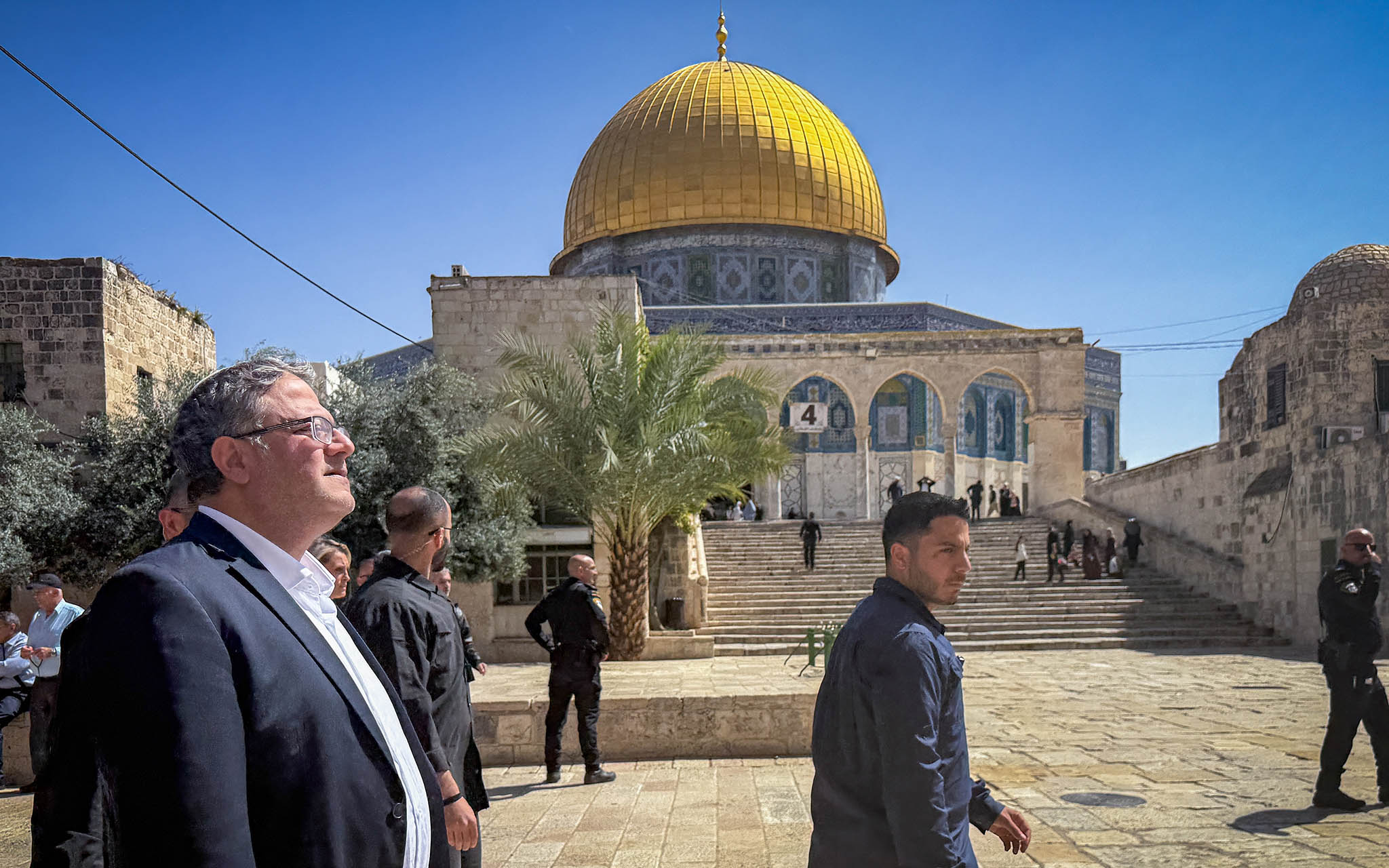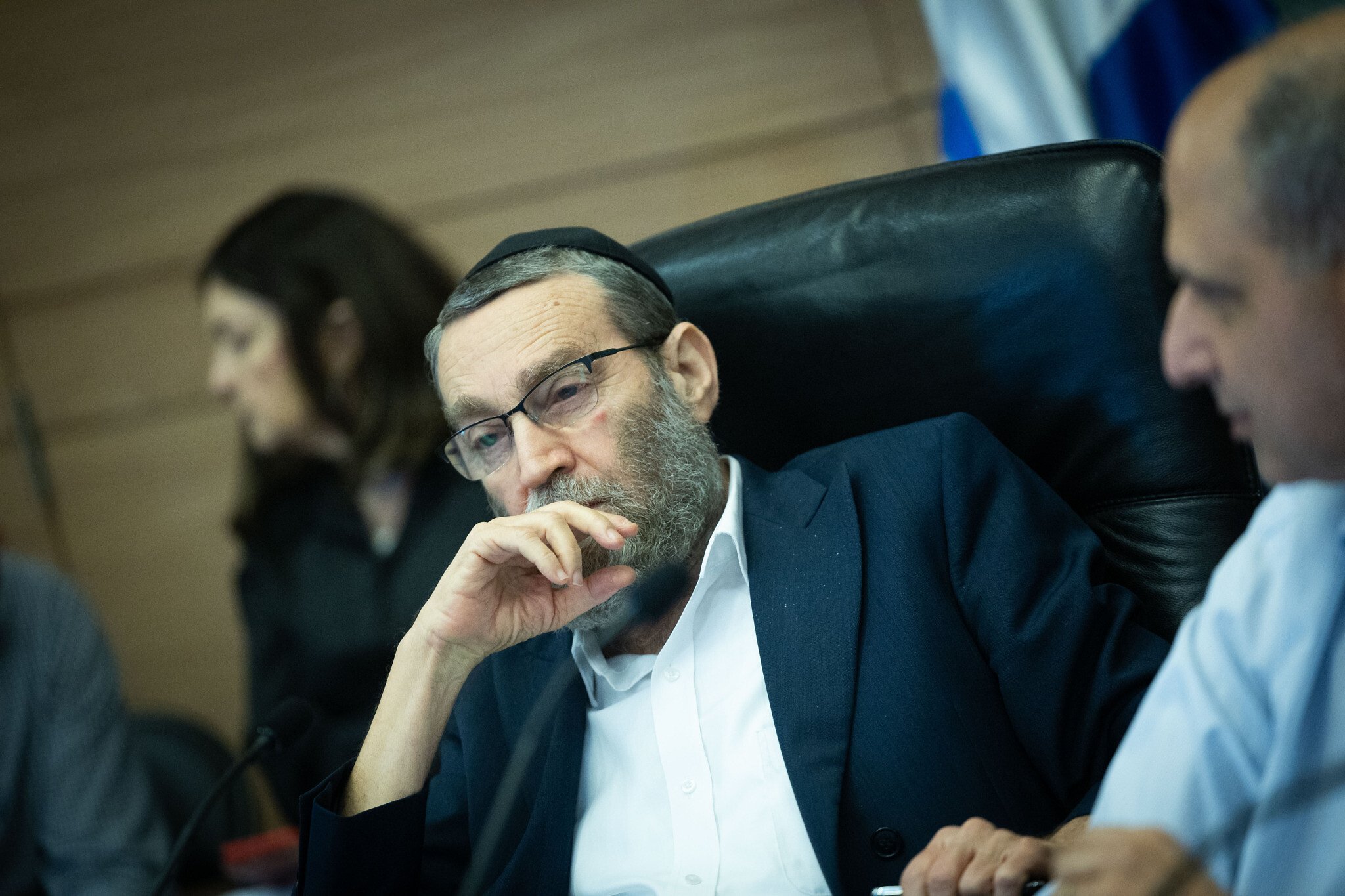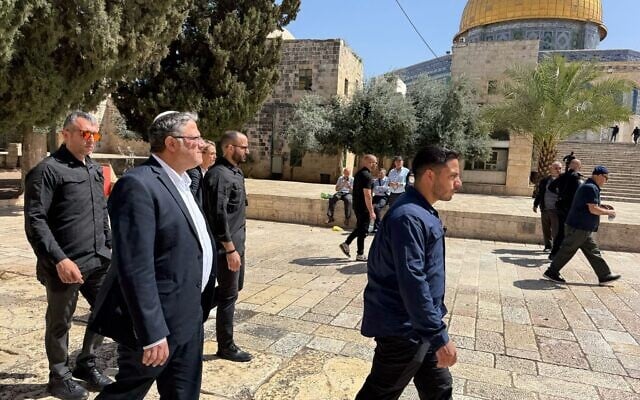



National Security Minister Itamar Ben Gvir sparked condemnations on Wednesday when he ascended the Temple Mount in Jerusalem’s Old City.
The far-right minister went up to the flashpoint site, holy to both Jews and Muslims, after a nearly two-week period of Ramadan during which Jews were forbidden from visiting.
Ben Gvir drew criticism from ultra-Orthodox MK Moshe Gafni (United Torah Judaism), who tagged him in a tweet calling his ascent “an attack on the sanctity of the holiest place for the Jewish people and on the status quo” — an informal agreement regulating the holy sites in the Old City.
The visit “does not demonstrate sovereignty; on the contrary, it constitutes desecration and causes unnecessary incitement in the Muslim world,” he tweeted, appealing to the minister to “stop ascending the Temple Mount.”
Neighboring Jordan also condemned the move as a “dangerous escalation.”
In a statement by its foreign ministry, the Hashemite kingdom described the ascent as a “storming” and “unacceptable provocation” that stands to further enflame tensions in the region.

Seizing upon Ben Gvir’s visit, the Hamas terror group called on Palestinians in the West Bank “to escalate their confrontation” with Israel “in defense of our land and our holy sites, foremost among them the blessed Al-Aqsa Mosque,” which sits atop the Temple Mount.
Ben Gvir has made a habit of publicizing his visits to the holy site since initially joining Prime Minister Benjamin Netanyahu’s government in 2022. Wednesday marked the first time he had done so since rejoining the coalition in March, with the government’s renewal of fighting in Gaza.
The Temple Mount is the holiest place in Judaism, as the site of the two biblical Temples. Known to Muslims as the Noble Sanctuary, it is home to Al-Aqsa Mosque, the third-holiest site in Islam.
Changes to the status quo on the Temple Mount evoke strong emotions and are frequently cited as a Muslim motivation for religious violence.
Jews are not officially allowed to pray at the Temple Mount, but the Israel Police, which comes under the purview of Ben Gvir’s ministry, has increasingly tolerated limited prayer there.
Ben Gvir has said repeatedly that his policy is to allow Jewish prayer there, drawing rebukes from US and international officials, as well as warnings from the security establishment that renewed conflict over the site could pose a risk to national security.
The far-right minister has also rebuffed Netanyahu’s repeated insistence that the decades-old status quo remains in force.

